Tom Pidcock picked three Tour de France stages to win – this is one of them
The multi-talented Pidcock set his sights on three stages in the opening nine days of this Tour in a bid to add to his famous win on Alpe d’Huez last year. Today’s mountainous ride to Laruns is No 3
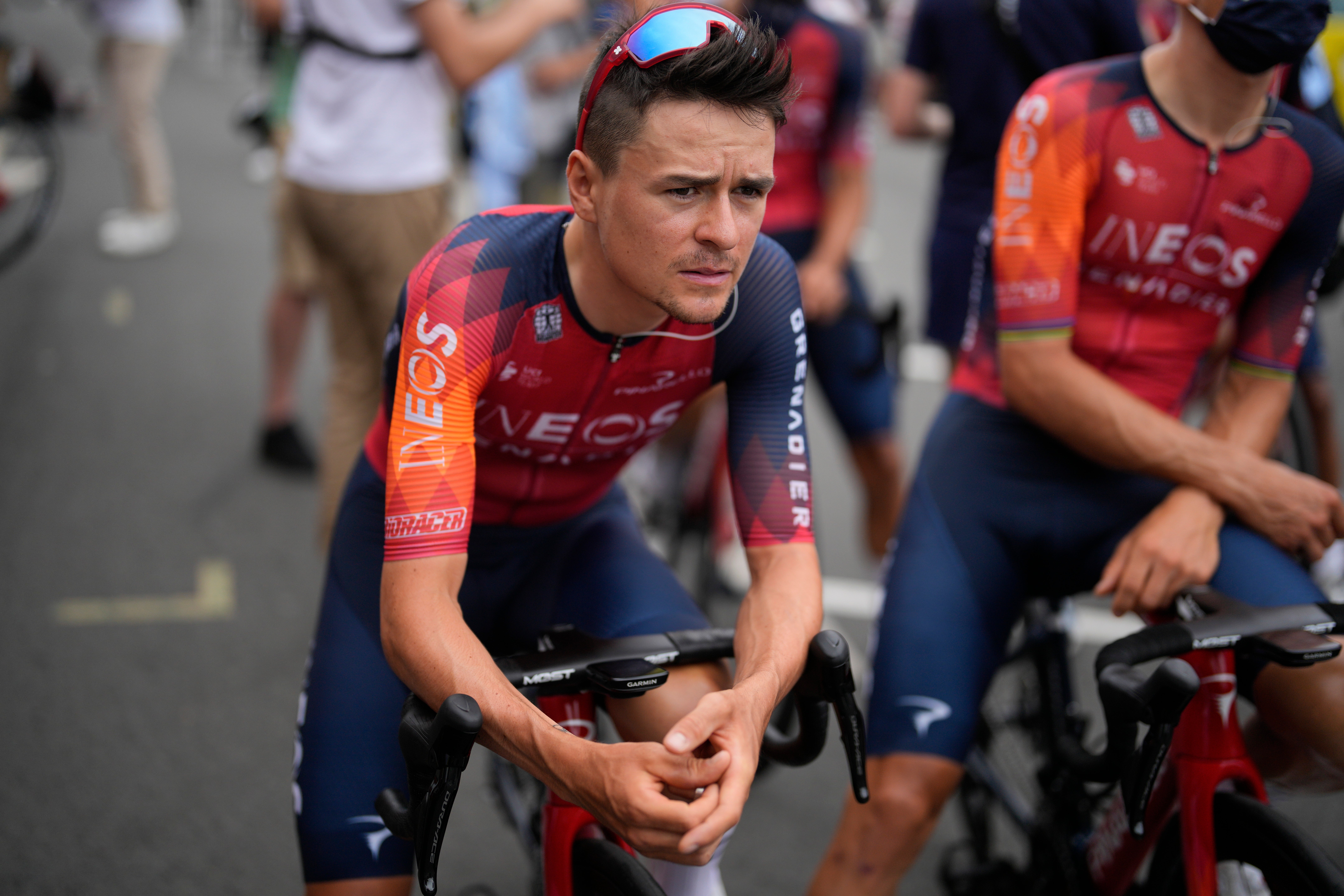
When Tom Pidcock assessed the 2023 Tour de France with his leadership team at Ineos Grenadiers, they pored over the opening nine stages before the first rest day and earmarked three they thought he could win.
The first was stage one, a hilly route through the Spanish Basque Country with the promise of the yellow jersey at the finish in Bilbao. It didn’t go to plan – Pidcock couldn’t keep pace with the elite group over the steep Cote de Vivero climb and he lost contact, eventually coming in 30 seconds behind the winner, fellow Briton Adam Yates. He was frustrated by how it played out.
The second was stage two, another lumpy day en route to San Sebastian. This time he did keep up with the fastest few, but he could not out-sprint the supreme Wout van Aert or two-time champion Tadej Pogacar, and anyway, none of them had accounted for the surprise solo attack of Victor Lafay. Pidcock finished fourth.
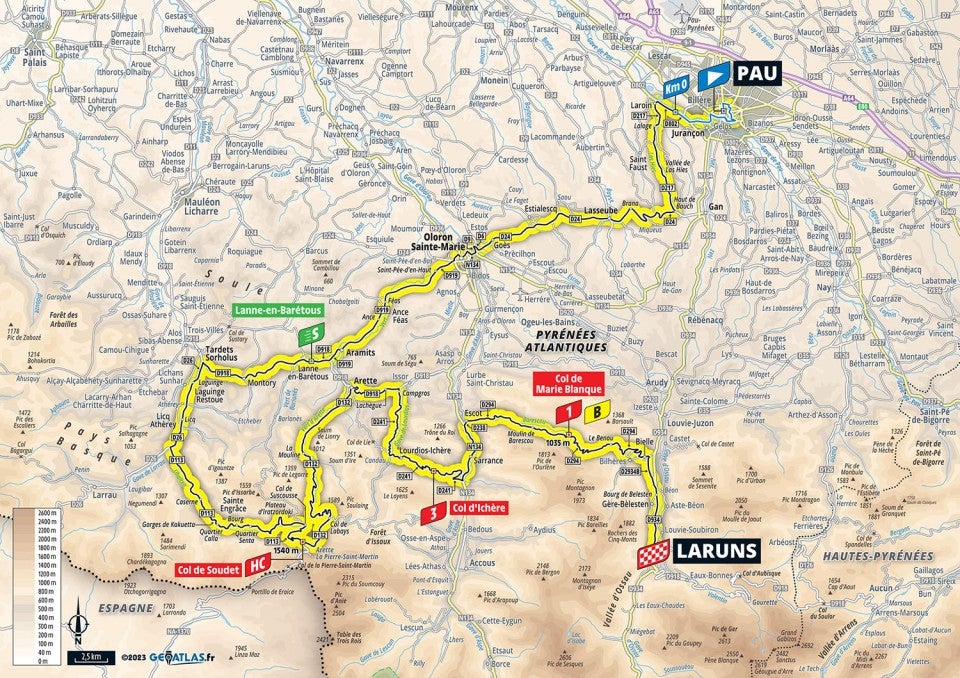
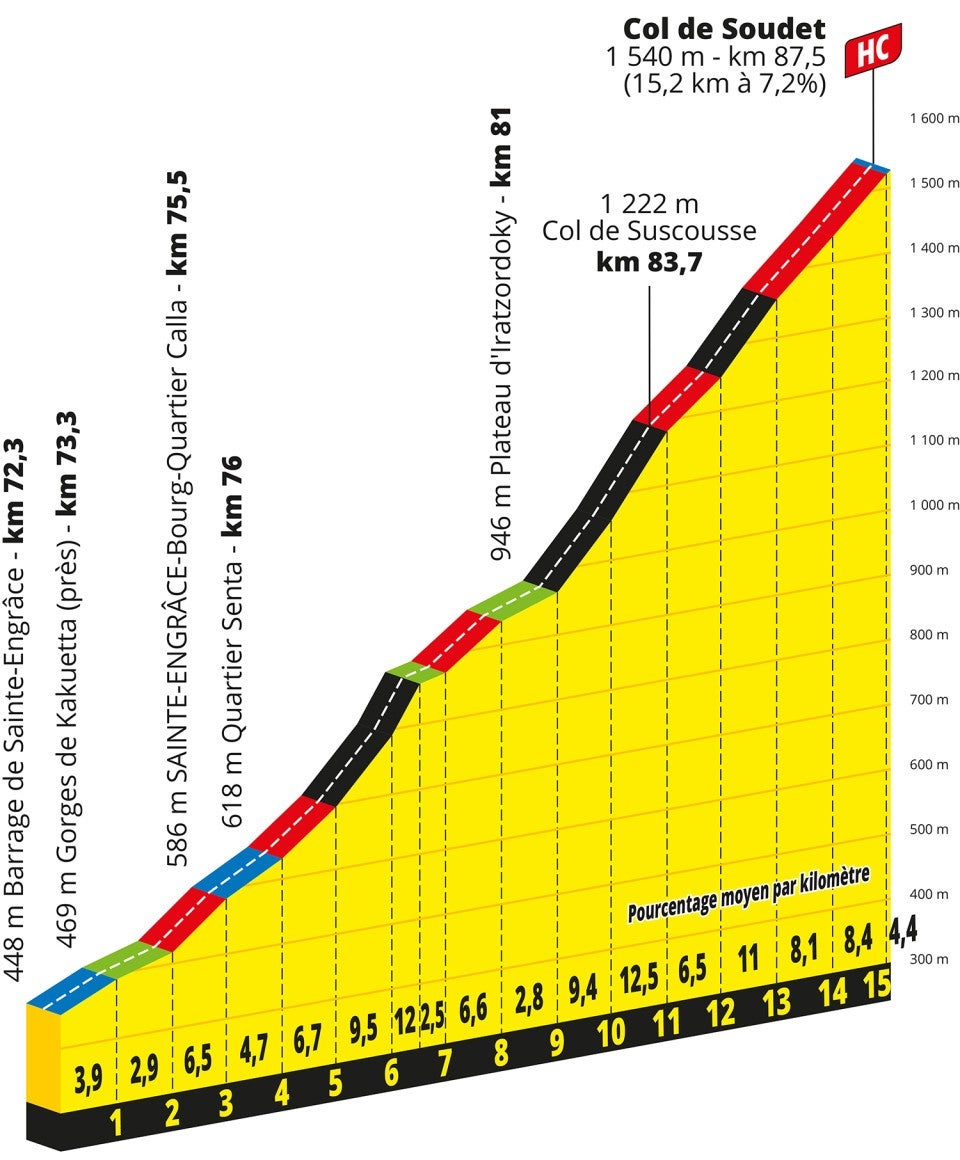
The third was today’s stage five: the first serious mountain route as the peloton heads for the Pyrenees. In the middle of the day is the Col de Soudet, a 15.2km climb averaging 7.2% gradient. Broken down into kilometres, it is clear just how steep the middle section is, reaching 12.5% – it’s going to be a tough grind.
Climbing is not Pidcock’s greatest strength but he’s certainly not afraid of taking on brutish ascents when his legs feel good, as his memorable win atop Alpe d’Huez last year showed. Where he can capitalise is down the other side, because no one descends as smoothly and as quickly as Pidcock.
“There’s a certain task in getting over the first climb with the front guys first, and then we can look at the descent,” he told The Independent at the finish of stage four, outside Ineos Grenadiers’ team bus in Nogaro. “It’s certainly an opportunity.”
Pidcock’s flying descents were honed on a mountain bike growing up in Yorkshire with an Olympic cycling father. Tom and his brother Joe travelled everywhere by bike from three years old. That natural ability saw him race down the Alpe like a slalom skier, and yet what is so exceptional about Pidock is that those handling skills are combined with strong legs and deep lungs.
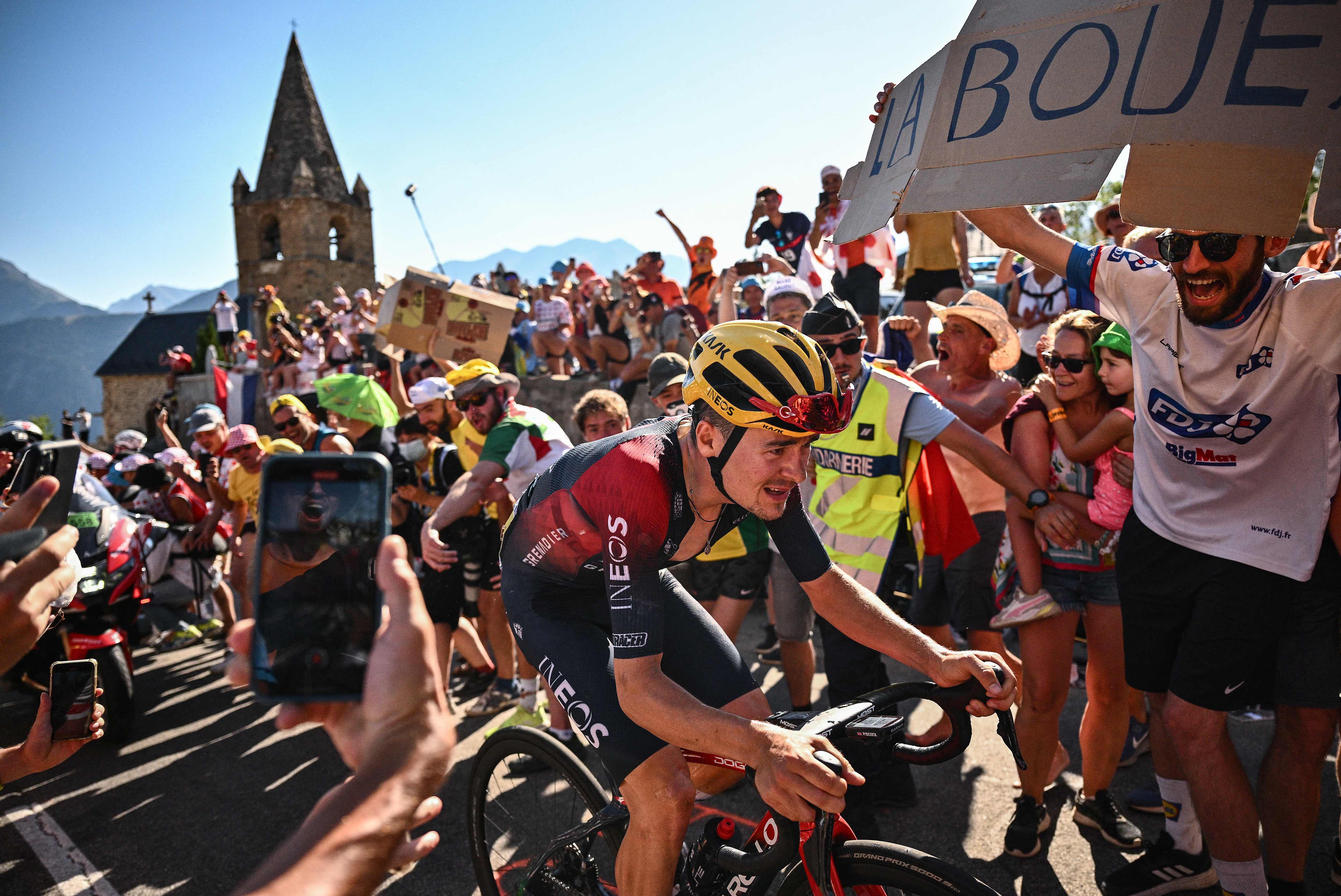
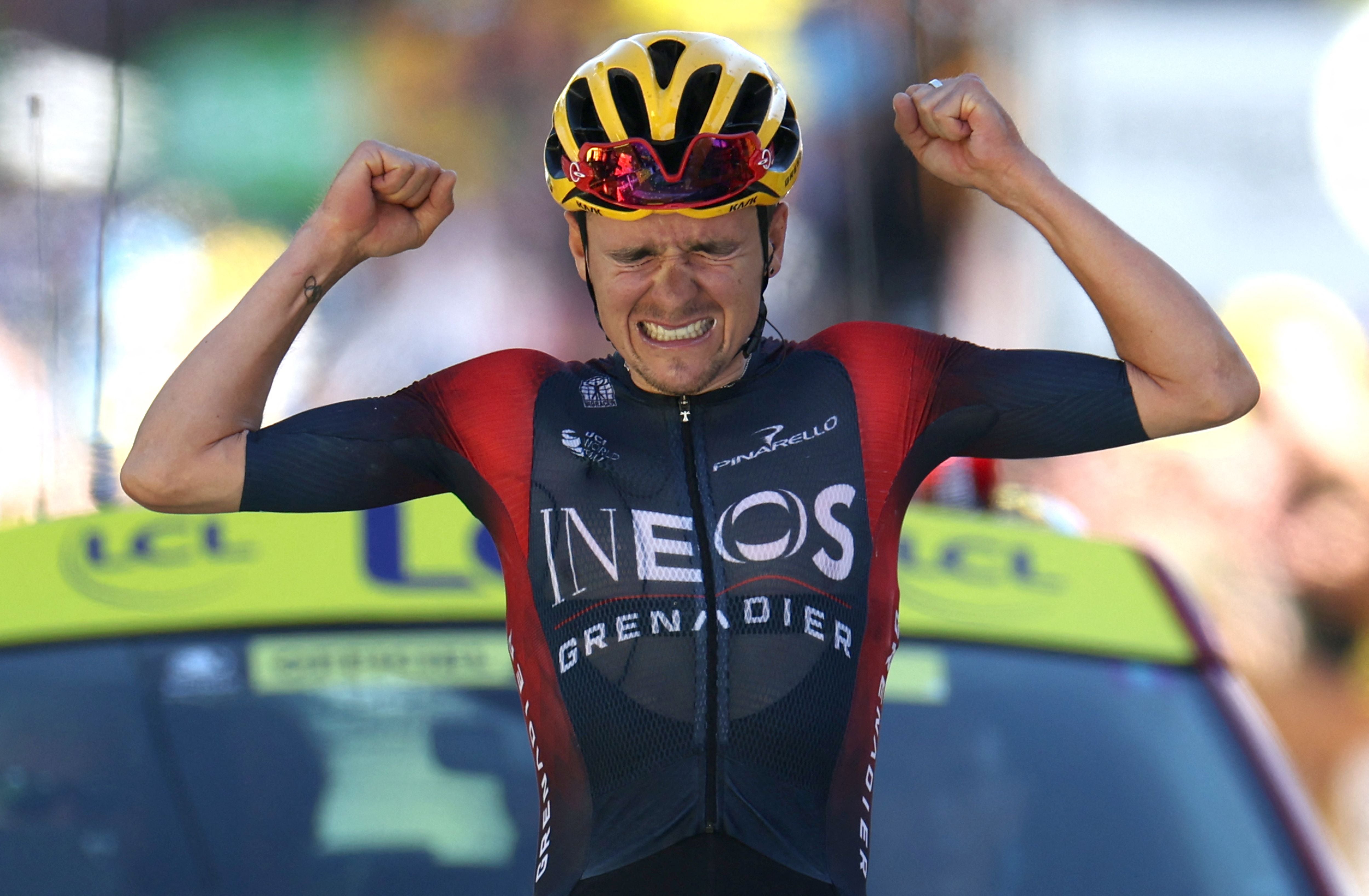
Pidcock can turn his hand to just about anything on a bike. The 23-year-old is already a cyclo-cross world champion, a mountain bike Olympic gold medallist, an electric mountain bike world champion and a junior road race world champion. He’s a Tour de France stage winner and a spring Classics winner at the iconic Strade Bianche. Give him a Boris Bike or a Brompton and Pidcock can make it sing.
“These days a cross bike is pretty much the same as a road bike,” he told The Independent in 2021. “Maybe back in the day it was heavier. I don’t see why the line can’t be blurred, because riding a bike is riding a bike, it’s two wheels. I’ve grown up riding all different kinds of bikes.”
His Olympic hopes were almost scuppered by a snapped collarbone after he was knocked off his bike by a van driver while training. With the help of a heat chamber installed in his spare room, Pidcock recovered not only to take part in Tokyo but to win gold in dominant style.
“I’m happy this s**t’s only every four years,” he said afterwards. “Because it’s f***ing stressful.”
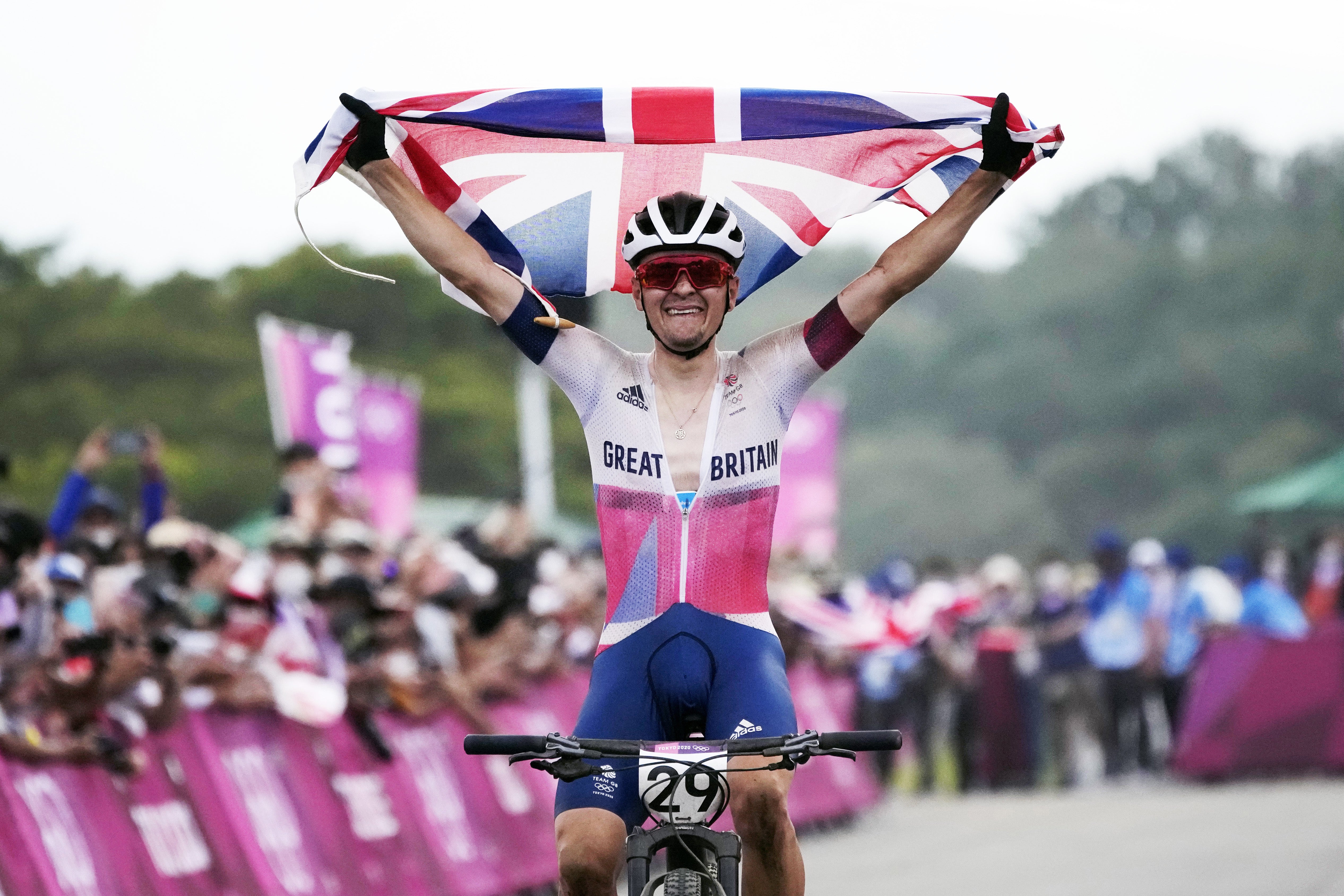
The discussion around Pidcock is framed differently to other young athletes. It is not about how talented he might be – his talent is not in question. It is exactly where all that skill should be channelled, where he might find his groove and what he will turn his mind to. He believes winning a Tour de France is a realistic goal, and it probably is. But that would require utter dedication to one discipline; to one race.
“Grand tours, I’d say they’re the pinnacle of the sport,” Pidcock said last year, referring to the big three road races in Spain, Italy and the Tour de France. “Once you start focusing on them, that’s quite a one-way road. I’m not in a rush to do that.”
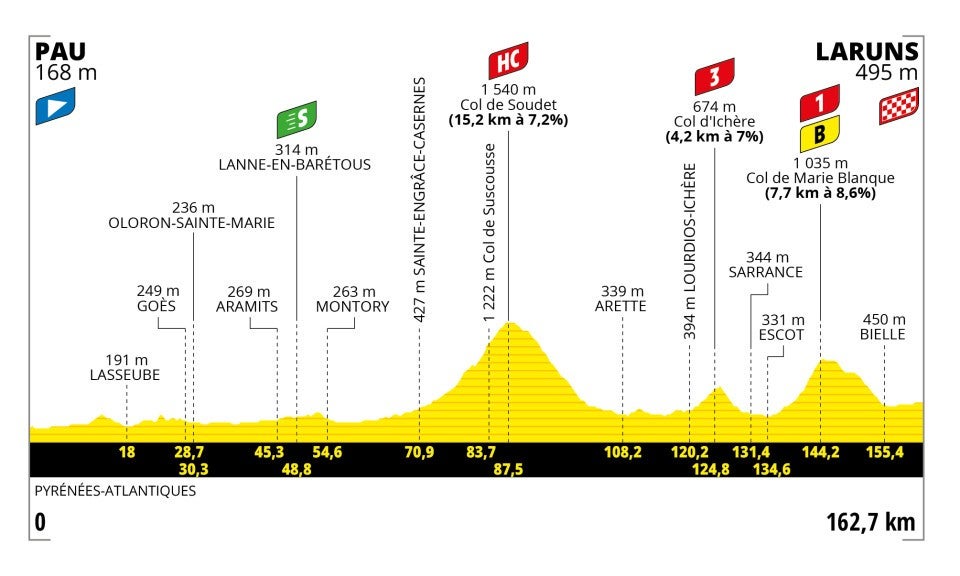
So for now his sights are set on grabbing stages where he can. Today’s finale over the Col de Marie Blanque (7.7km at 8.6%) will be extremely draining too, especially after what’s come before. The yellow jersey contenders – Jonas Vingegaard and Tadej Pogacar – might throw down and duel, with the winner stamping their authority on the race. But if Pidcock is with them, or up ahead, that fast descent towards the finish in Laruns will make Pidcock a threat.
There will be other chances down the road of this Tour, but there is little point looking ahead in a 3,406km race that can turn on you in an instant. Stage five is one last opportunity before next week’s rest day and a chance to reassess: Pidcock only needs two wheels and a finish line to make something magical happen.
Join our commenting forum
Join thought-provoking conversations, follow other Independent readers and see their replies
Comments
Bookmark popover
Removed from bookmarks